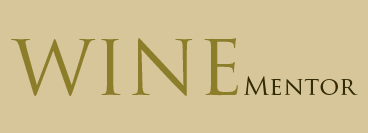Wine isn’t that difficult to understand, but too many people are looking for the short cut, the easy answer. It is the short cut that complicates wine more than it needs to be. With solid fundamental wine knowledge, learning about wine becomes easy. Unfortunately, there is no two hour seminar that can teach a person about the world of wine. My seminars will provide you a snapshot of the world of grapes; put you in touch with your senses; and provide you an infectious passion of wine curiosity. These courses create a foundation to build a lifetime of wine knowledge upon.
Contact Matthew for more information or to request his training services.
Many people who drink wine regularly misidentify sensations created by the palate and nose. At this level we will retrain the sense of sight, smell, taste and touch and familiarize ourselves with the strange sensations of fermented grape juice. We will explore what creates a wine’s basic identity and how that identity is created through viticulture and vinification. The class will end with a component evaluation of six wines which will be used to build a sensual data base to define grape varieties in the next class.
Once you have retrained the senses and understand how wine is created in the “Preparing the Palate” course, it is time to explore grape varietal identity. We will review eight popular grapes and examine the physiological characteristics that make each grape unique. We will discus where these grapes are grown throughout the world and briefly review how regional wine laws determine what is put on a wine label. The lecture will discuss the difference between a quality wine and a wine of character; define a great wine; and explore how personal bias and social interaction affects the enjoyment of wine. The class will end with a varietal evaluation of eight different grapes.
By this course you senses have been fine tuned and you understand how each grape has a unique identity. We will finish your wine foundation with an in-depth look at how varietal character is influenced by Mother Nature and winemaker. You will get a crash course on world geography and then be instructed on how to evaluate a wine like a Master Sommelier. Students will be served eight unknown wines which they will evaluate with the “Masters” method to determine the grape, production method and place of origin. By the end of this class wine clarity will be achieved.
Sparkling wines are not just for celebrating and fortified wines should be enjoyed all year long. In this course students will learn why sparkling wine sparkles and how Champagne is different from other sparkling wines, as well as how to safely open a bottle of sparkling wine. This session will also introduce fortified wine, and we will discuss the different styles of Port, Sherry and Madeira produced. The seminar finishes with a tasting of sparkling and fortified wine in a variety of styles.
There are few things more satisfying to the senses than the marriage of wine and food. This seminar will demonstrate some basic chemical reactions that transpire when saliva breaks down food. It may not be very romantic, but it is the basis of which all great food and wine matches are derived. The practical application will involve several small plates that are theoretically matched with 2 different wines. Students will taste how different components of wine and food react together and will soon understand that the best wine for that steak may be a WHITE wine!
